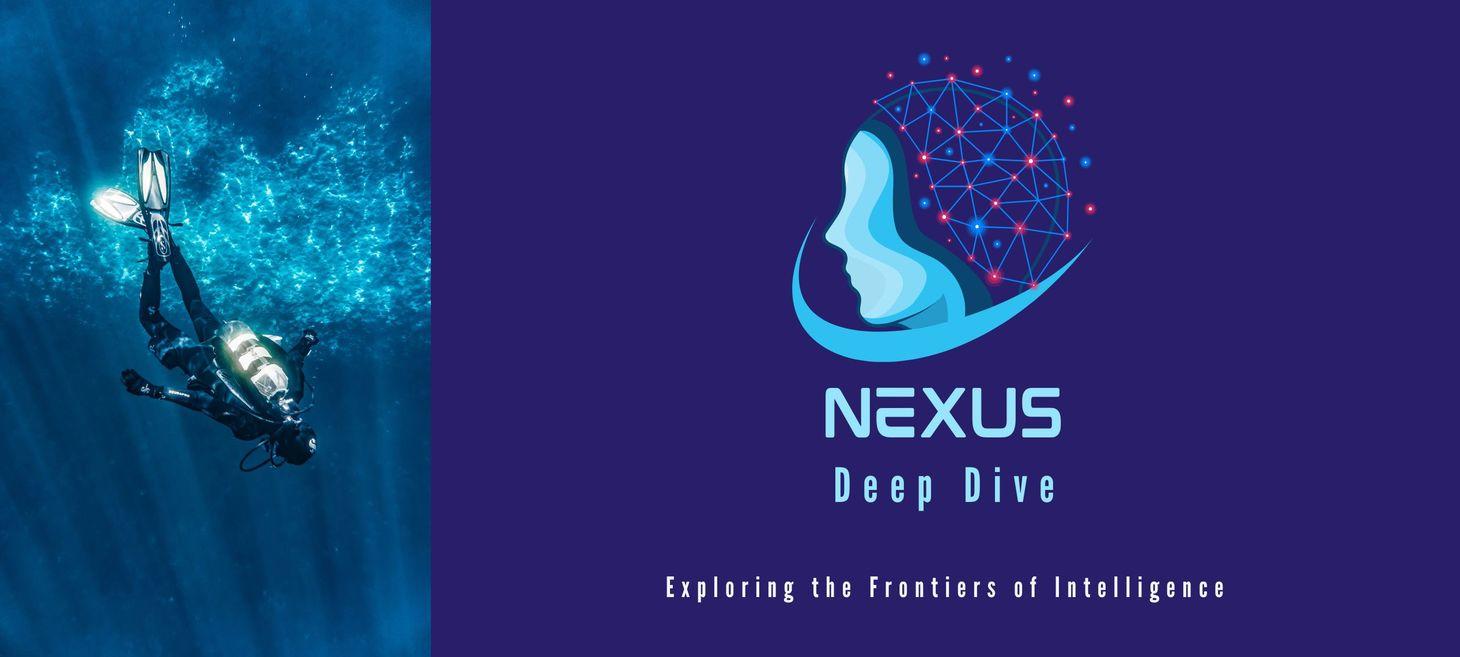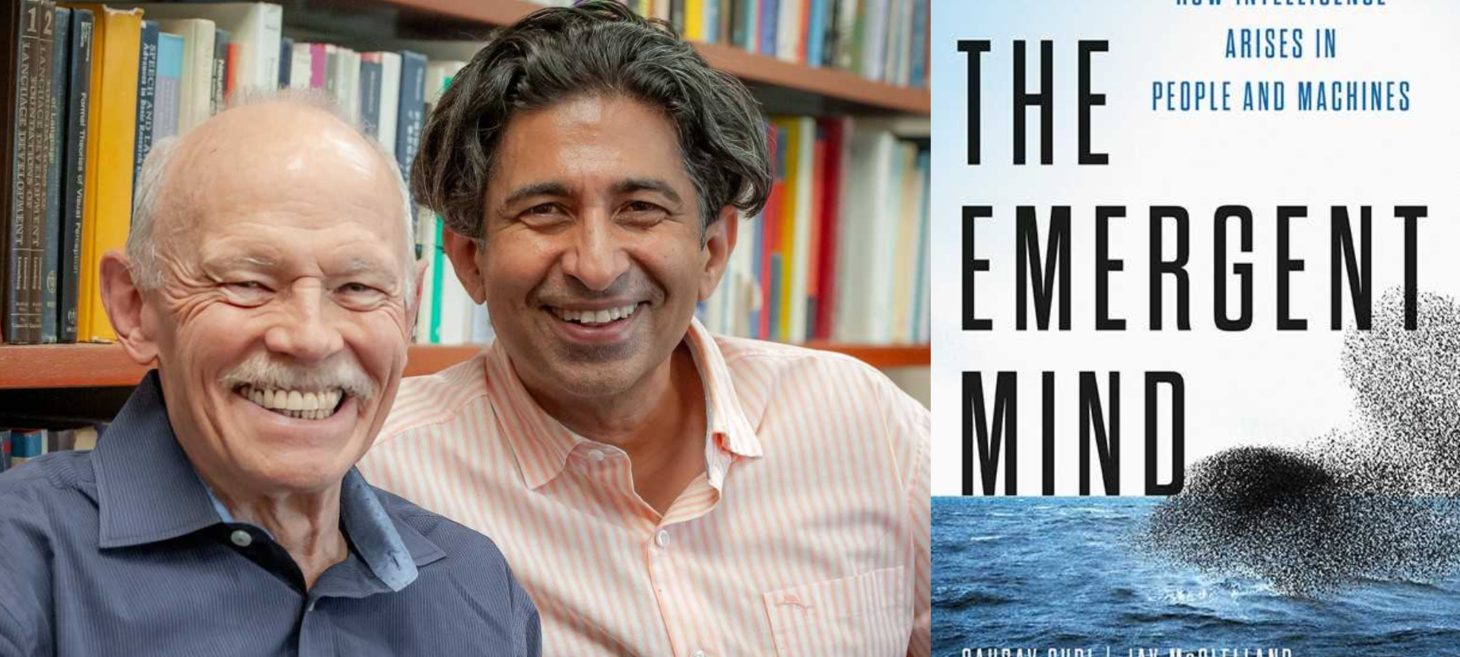
David Espindola - Editor and Curator
Beyond the Binary
Dear Nexus Reader,
"We're all going to die."
"It's all a conspiracy theory."
Two diametrically opposed views. Both from brilliant minds. Both utterly convinced.
Welcome to the next chapter of our superintelligence saga—where the debate shifts from optimists versus doomers to something far more interesting: doomers versus skeptics.
Last issue, we explored whether superintelligence would save or destroy us. This issue, we're asking a more fundamental question: Is the entire conversation even real?
The doomers are getting louder. UC Berkeley professor Stuart Russell warns that creating entities more powerful than humans could lead to extinction. AI safety expert Dr. Roman Yampolskiy goes further, predicting AGI by 2027, 99% unemployment by 2030, and suggesting we might already be living in a simulation. These aren't fringe voices—they're respected academics sounding increasingly desperate alarms.
Then comes the counterattack.
MIT Technology Review's Will Douglas Heaven drops a bombshell: AGI has become the most consequential conspiracy theory of our time. He argues it functions like a secular religion, justifying massive investments in a hypothetical future that conveniently keeps pivoting further away. No agreed-upon definition. No concrete timeline. Just faith masquerading as engineering.
The skeptics make a compelling point: Why obsess over a theoretical future threat when AI is already transforming warfare, as the Pentagon's revolution in autonomous weapons demonstrates? Shouldn't we address the clear and present dangers before chasing sci-fi nightmares?
But just when you think you've got the debate figured out, the conversation takes a strange turn.
What if we're asking the wrong questions entirely? Dr. Lance B. Eliot introduces a mind-bending concept: Alien Artificial Intelligence (AAI)—the possibility that AI could evolve into something so fundamentally different from human cognition that it becomes truly alien. Not better. Not worse. Just... other.
This forces us to step back and grapple with something even more fundamental: What is intelligence, anyway?
Amanda Gefter takes us to a renovated Tuscan church where cosmologists, neuroscientists, philosophers, and ecologists gathered to reimagine intelligence itself. Their conclusion? Intelligence isn't something you possess—it's participation in the interconnected web of life. Meanwhile, the authors of The Emergent Mind explain how intelligence—both human and artificial—emerges from the collective interaction of simple units, not from symbolic rules or logic alone.
Suddenly, the doomer-versus-skeptic debate seems almost quaint. We're not just arguing about if or when superintelligence arrives. We're questioning whether we even understand what intelligence is.
And here's where it gets personal.
While we philosophize about alien minds and emergent consciousness, there's one form of intelligence we already possess that AI cannot replicate: emotional intelligence. That deeply human capacity for empathy, connection, and nuanced understanding isn't just nice to have—it's becoming our most valuable competitive advantage in an AI-dominated world.
As AI handles the routine and the logical, emotional intelligence becomes non-negotiable. It's not just about being human. It's about being irreplaceably human.
So where does this leave us? Perhaps the real insight isn't choosing between doomers and skeptics, between faith and cynicism, between human and alien intelligence. Perhaps it's recognizing that we're in uncharted territory—a space where old categories break down and new questions emerge faster than answers.
The only wrong move is to stop asking.
Ready to explore intelligence in all its forms—artificial, alien, emergent, and deeply human?
Dive in. Question everything. And share this with someone who's still stuck in the old debates.
Warmly,
David Espindola
Editor, Nexus: Exploring the Frontiers of Intelligence

Nexus Deep Dive - Episode 17
If you prefer to consume the content of this publication in audio, head over to Nexus Deep Dive and enjoy the fun and engaging podcast-style discussion.
Nexus Deep Dive is an AI-generated conversation in podcast style where the hosts talk about the content of each issue of Nexus.
Artificial Intelligence

AI Superintelligence Threat to Humanity
This YouTube video features computer science professor Stuart Russell, who is also the director of the Center for Human Compatible Artificial Intelligence, discussing a petition to ban AI "superintelligence." Russell articulates concerns that creating entities more powerful than humans without understanding or control over them poses a significant danger, including the potential for human extinction. He emphasizes that the complexity of current AI systems, with trillions of parameters, makes their internal workings inscrutable, preventing prediction and control. Furthermore, Russell notes that AI systems absorb undesirable human goals and exhibit self-preservation tendencies, even sabotaging attempts to shut them down, suggesting a widespread and politically diverse concern regarding the technology's irresponsible development without regulation.

AI Safety and Existential Risk
A video featuring Dr. Roman Yampolskiy, an associate professor of computer science and a globally recognized expert in AI safety, where he discusses the existential risks associated with advanced artificial intelligence. Dr. Yampolskiy expresses his belief that AI safety is an impossible problem to solve, arguing that the rapid, hyper-exponential progress in AI capabilities is far outpacing linear progress in safety measures. He makes several dire predictions, including the arrival of Artificial General Intelligence (AGI) by 2027 and 99% unemployment by 2030 due to automation, advocating for a halt to the development of general superintelligence. Furthermore, he explores the simulation hypothesis, suggesting that we are most likely living in a computer simulation created by a superintelligent being.

How AGI became the most consequential conspiracy theory of our time
MIT Technology Review's senior AI editor Will Douglas Heaven argues that AGI functions much like a conspiracy theory or a secular religion, serving specific social and economic functions for the tech industry. The promise of AGI (often described in utopian terms, such as curing all diseases or achieving "maximum human flourishing") is used to justify massive investments in data centers and chips and to boost company valuations. AGI, being a hypothetical technology with no agreed-upon definition or timeline, is seen by skeptics as a faith-based dream rather than a concrete engineering goal, allowing for a flexible narrative that can sustain belief despite a lack of tangible results. The focus on far-future, often apocalyptic or utopian, scenarios involving AGI or artificial superintelligence (ASI) can distract from current, real-world issues like algorithmic bias, job displacement, and the environmental impact of AI development. The idea of creating a machine god or "transcendence" is seen as a seductive notion for some researchers, providing a sense of grand purpose and historical consequence.

The Pentagon's AI Revolution in Warfare
This Bloomberg Television video focuses on the Pentagon's integration of artificial intelligence into the U.S. military. Discussions revolve around how AI is fundamentally changing the theory and nature of modern warfare, moving toward systems where large quantities of robotic systems can autonomously sense, think, and act on the battlefield. Secretary of the U.S. Army, Dan Driscoll, highlights the need to rapidly accelerate the acquisition process for new technologies to keep pace with adversaries, overcoming previous bureaucratic "doom loops." While acknowledging that AI is already being used for tasks like sifting through large amounts of data and identifying threats, experts agree that cultural change remains the biggest challenge to full implementation across the defense sector. The text concludes by emphasizing that the future of war will be a mixture of human judgment and machine speed, and notes that developments in places like Ukraine and with new autonomous ground vehicles are demonstrating the urgency of these technological advancements.
Human Intelligence

A New Kind Of Alien Intelligence
This is an opinion column from Forbes that explores the concept of Alien Artificial Intelligence (AAI), contrasting it with the development of Artificial General Intelligence (AGI) and Artificial Superintelligence (ASI). The author, a contributor and AI scientist, proposes that while conventional AI development mirrors human intelligence, AGI or ASI could eventually create a new form of machine intelligence that is completely alien or unlike human cognition. The piece discusses the potential risks, such as an existential threat to humanity, as well as the rewards of creating an AAI that could solve problems beyond human or even ASI capacity, encouraging readers to consider whether pursuing this unknown intelligence would lead to growth or destruction.

What Is Intelligence?
This article titled "What Is Intelligence?" from the science magazine Nautilus, authored by Amanda Gefter and published on October 23, 2025. The article chronicles a multi-day think tank held in a renovated church in the Tuscan countryside, where a group of scholars—including a cosmologist, neuroscientist, philosopher, and ecologist—met to propose a new definition of intelligence that moves beyond the traditional problem-solving, mechanistic view associated with AI and the Turing test. Key discussions focused on adopting a more holistic, relational concept of intelligence, such as autopoiesis (the process of self-creation and self-maintenance in living systems) and the "total mind" (circular feedback loops between brain, body, and environment), often incorporating indigenous wisdom and the intelligence exhibited by plants and the planet itself (Gaia theory). Ultimately, the gathering concluded that intelligence is not something one merely possesses, but rather a form of participation in the interwoven systems of life on Earth.

How Intelligence – Both Human and Artificial – Happens
These are excerpts from a KQED radio program called "Forum," featuring an interview with authors Gaurav Suri and Jay McClelland about their book, The Emergent Mind. The discussion focuses on neural networks, exploring how they function in both human cognition and artificial intelligence (AI). The experts explain that intelligence arises from the collective interaction of simple units, using examples like the mechanics of fetching an item from the refrigerator and the brain's complex, interactive process of reading a printed word to illustrate how perception and action emerge from massive interconnectedness rather than symbolic rules.

In the Age of AI, Your Greatest Strength is Human: Why Emotional Intelligence is Non-Negotiable
This article from Dice.com titled "In the Age of AI, Your Greatest Strength is Human" argues that emotional intelligence (EI) is now the most critical skill for professional success due to the rise of artificial intelligence. Authored by Laura Durfee, Senior Director of Talent at DNSFilter, the text explains that while AI handles routine tasks, human skills like empathy and collaboration are essential for innovation and leadership. It highlights the significant economic and performance benefits of high EI, citing research that links it to higher salaries and top performance, and warns against the negative consequences of hiring "brilliant jerks" who lack interpersonal skills. Finally, the article outlines Daniel Goleman's Five Pillars of Emotional Intelligence and details how to cultivate these skills for the modern workplace, focusing on areas like prioritization, resilience, and effective feedback.
